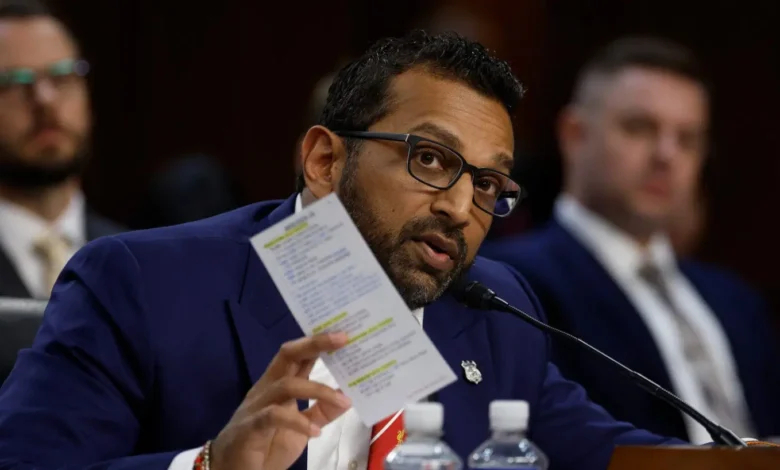Patel Says U.S. Border With Canada Now Bigger Natl. Security Threat

FBI Director Kash Patel revealed that while the southern border has been largely secured, growing concern now centers on the less protected northern border, which he warned could be exploited by terrorists.
“The enemy has adapted,” Patel told the House Judiciary Committee. “We need more focus on the northern border to stop known or suspected terrorists from coming in from places like China, Russia, the Middle East, Africa, Afghanistan.”
Patel’s remarks follow years of focus on the southern border and the rising number of terrorism suspects flagged in the FBI’s Terrorist Screening Dataset, commonly known as the watch list.
He said the northern border poses a greater concern because of its vast geography and the ease with which adversaries can adapt. “We’ve encountered almost zero at the southern border since the southern border’s been sealed,” he said. “The problem we are running into is our northern border.”
Data shows activity on both borders.
Between May and July, Border Patrol agents arrested 37 people listed on the terrorism watch list, according to the latest figures from Customs and Border Protection — a sharp increase compared with the pace at the end of the Biden administration and the beginning of President Trump’s second term, the Washington Times reports.
Customs and Border Protection has also reported a sharp rise in watch list matches at official border crossings. At the southern border, the number of individuals flagged grew from fewer than 10 a month earlier this year to more than 500 a month between May and July.
Experts attribute the surge to the administration’s decision to classify major Mexican cartels as foreign terrorist organizations, meaning individuals who previously might not have been flagged are now appearing on the list. Most are Mexican nationals.
Patel testified Tuesday before the Senate Judiciary Committee, where Chairman Sen. Charles Grassley, R-Iowa, criticized Biden administration programs that he said had admitted potential terrorism suspects. Grassley cited the U.S. evacuation from Kabul, saying intelligence officials identified derogatory information on 1,600 evacuees, including some flagged as possible terror threats.
Patel said the bureau is reviewing that data and noted that Russia, China, and Iran remain the top focus of FBI counterintelligence efforts, with investigations involving each nation significantly increasing.
In just over six months, President Donald Trump’s border enforcement policies pared the Biden-era backlog of more than 4.2 million pending cases before immigration judges to 3.8 million, The Washington Times reported last month.
Some of the drop is due to better efficiency in the immigration courts, officially known as the Executive Office for Immigration Review.
However, a senior Justice Department official said, “The real change has been the drop in new cases.”
“That is entirely due to President Trump’s policies securing the border,” the official told The Washington Times. “It’s not a novel concept: Enforcing the law, rather than ignoring it, really does work to reduce illegal immigration and the backlog.”
Under President Biden, the government averaged nearly 150,000 new cases each month while judges completed fewer than 60,000.
Since January, the courts have averaged just 29,000 new cases monthly and completed more than 65,000.
The Executive Office for Immigration Review data is another yardstick of Trump’s impact on immigration and the decisions of would-be illegal immigrants, who for the first time in modern history are no longer attempting to breach the border in any significant number.
The Department of Homeland Security said Border Patrol agents recorded 116 arrests along the 1,954-mile southern border one day last month.
In December 2023, at the peak of the Biden border surge, agents averaged more than 8,050 daily arrests.
Andrew “Art” Arthur, a former immigration judge, said the backlog reduction is more than just a statistic.
It means that newcomers’ cases are heard sooner, those with valid claims get protection faster, and those with bogus cases can face deportation.
“That message reverberates in their home countries, discouraging would-be migrants from attempting the journey,” Arthur said.





